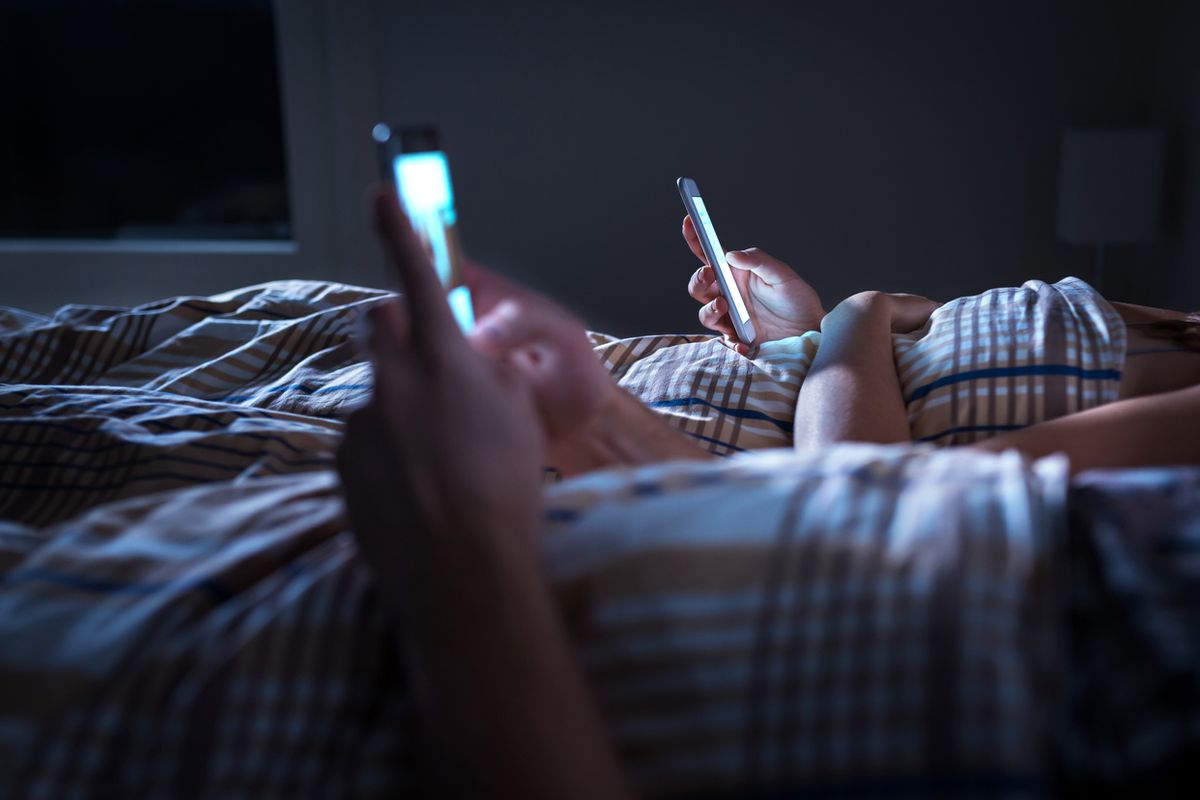
iStock
Smartphone blue light might not actually harm your sleep
Researchers find blue light emitted by screens might not affect sleep patterns as originally thought

Researchers find blue light emitted by screens might not affect sleep patterns as originally thought
In recent years it has become normal for smartphones and other products to reduce the amount of blue light their displays produce in the evenings and at night.
The commonly-held belief is that blue light tells our body clocks that it is daylight and to stay awake, so using a phone late at night might cause our sleep to be disrupted. This prompted phone makers like Apple and Google to add night modes, which turn down blue light in the evening.
Read More:
However, researchers at the University of Manchester in the UK now claim blue light may not be as disruptive to sleep patterns as originally thought. A team of scientists at the university went even further, announcing this week that the opposite might be a better option.
This could cause many smart home owners to rethink how their smart lighting is scheduled each day. Until now, it was generally believed that lighting should be bright white during the day to help boost concentration and confirm to the body that it is daytime, then shift to a warmer, more yellow setting in the evening to prepare the body for sleep.
A report from the university's biology department states: "Using dim, cooler lights in the evening and bright warmer lights in the day may be more beneficial to our health. Current technologies designed to limit our evening exposure to blue light, for example by changing the screen color on mobile devices, may therefore send us mixed messages".
This is because, the researchers claim, when devices activate their night mode the colors produced by the display (warmer, yellow hues) more closely resemble daylight.
Research carried out on mice, where the color of light was adjusted without changing the brightness, found blue colors produced weaker effects on the mouse body clock than equally bright yellow colors.

The researchers say their findings have important implications for the design of lighting and phone or computer displays.
Their findings go against previous research into the effects of light on the body clock. Research conducted by Harvard Medical School in 2012 claimed 6.5 hours of exposure to blue light instead of green (of the same brightness) suppressed melatonin production, which is used by the body to help fall asleep, for twice as long and shifted circadian rhythms by three hours, compared to 90 minutes for green light.
However, Dr Tim Brown from the University of Manchester said this week: "We show the common view that blue light has the strongest effect on the clock is misguided; in fact, the blue colors that are associated with twilight have a weaker effect than white or yellow light of equivalent brightness."
If the university's findings are correct, then smart light users could be better off switching their lights to a dimmer light in the evening, but use a pure white or even blueish color.
We wonder if a fondness for warmer, dimmer lighting in the evening is because it reminds us of the cosiness of rooms lit by firelight, instead of harsh office lighting.
Dr Brown continued: "There is lots of interest in altering the impact of light on the [body] clock by adjusting the brightness signals detected by melanopsin, but current approaches usually do this by changing the ratio of short and long wavelength light; this provides a small difference in brightness at the expense of perceptible changes in color.
"We argue that this is not the best approach, since the changes in color may oppose any benefits obtained from reducing the brightness signals detected by melanopsin. Our findings suggest that using dim, cooler lights in the evening and bright warmer lights in the day may be beneficial."
GearBrain Compatibility Find Engine
A pioneering recommendation platform where you can research,
discover, buy, and learn how to connect and optimize smart devices.
Join our community! Ask and answer questions about smart devices and save yours in My Gear.
